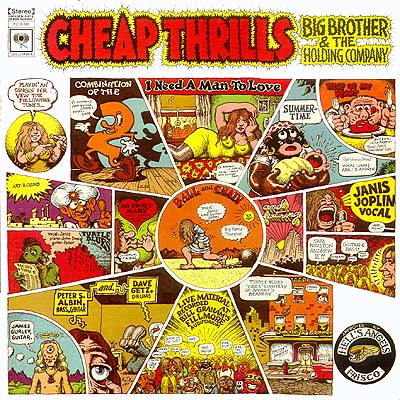Feed: Ruud Hein
Posted on: Thursday, February 18, 2010 2:11 AM
Author: Ruud
Subject: Piracy and the Future of Content
| I love reading. Good books, great storytelling. Movies. Movies too. From heart wrenching Sophie's Choice to "must see again" Divine Secrets of the Ya-Ya Sisterhood. Oh and music! Let's not forget about music. Sure, you might want to after you see me do a silly high-hat groove-that-bass move in the kitchen – but music sure does add that *snap*, doesn't it? Right on… And have you seen some of these articles? Some issues of the New York Times read like a monthly magazine – only it comes out daily! Hellooo! All this stuff, all this content comes from somewhere; it's made by people who need to earn a solid, reliable long-term living. Just like you. For us to keep on having these "I just love…" conversations, making content needs to be a viable living option. Now, making a living making content isn't so much about selling content itself. Selling content is what Van Gogh did. Make a painting. Sell it. Do it again. But most of a creator's income comes from selling content carriers, not content; a book, a DVD, a CD, a newspaper, a magazine. Content itself is often prohibitively expensive. To make the content that is the movie Avatar costs 237 million dollar. The book Gone With The Wind was written over roughly 7 years: what would that set you back? Content carriers on the other hand are insanely cheap. Once a copy of the creator's content is added, their price is mainly augmented by value add (e.g., jacket design), necessity (e.g., distribution) and of course simply making a buck or two. When physical content carriers were the only thing around things were pretty simple. Physical items carry physical costs so every piece of content was charged for even if only to cover the cost of the content carrier. If conflicted about the price you wouldn't buy it. Most of us refrained from physically removing the item from a store without paying for it. That would have been theft and theft is not cool. Digital content carriers changed every step of that process. They don't carry any real cost and if they do, they're not perceivable to normal people like you and me. Because digital content carriers don't cost anything, a lot of content is made available free to us too. A lot of content still costs money, even when the content carrier is an almost intangible digital download. But when conflicted about the price you can easily obtain an exact copy of the digital content carrier at no cost at all. This two-pillar model of free content and free piracy provides tremendous, frugal value. It's also unsustainable; the model destroys itself. For us to continue enjoying new content we have to ensure content creators can keep on making a living; can earn money. If not, if we fail, we're doomed to consume what already existed and no more. Or what existed and what a lone lunatic will make. Or wait for the odd, driven artist who we'll then rob blind. Arguments for Piracy As is the case with other faceless theft, such as insurance fraud, piracy has arguments in favor or in defense of the act. These arguments are aimed at nullifying the result (theft of someone's income somewhere somehow) of the action (piracy). Although many and varied, in essence they cover two broad subjects as well as their intersections: marketing and economics. MARKETING The notion that digital theft somehow helps to promote a product by making it more commonly known and available. Do you notice how we don't apply this argument to, say, shop lifting? And that whilst the popularity of Rolex would certainly be increased once more people had (free!) access to it. We recognize that the motive of a shoplifter isn't to help promote a new line of computer devices ("but the iPad will be so much more popular!") but to reap some sort of personal gain from it. Yes, popularity can be built through increased availability but this type of argument has several flaws. The goal isn't popularity: content creators seek income before popularity. The choice isn't ours: content creators decide what to give away, when. And taken through its logical next steps the argument results in a pyramid scheme without any monetary transaction at any level: that's insane. ECONOMICS: SOCIAL-ECONOMICAL JUSTICE
Again, we don't apply this argument to any physical product. Despite the fact that the people who invested most of the creativity in designing the iPad will make the least amount of money of it, we don't steal iPad's. We don't encourage it either and when someone is caught doing it and claims to do it to redistribute wealth in a more just way we thumb our nose and say "yeah, right!" Whether or not artists get enough of what rightfully is theirs – I don't know; it's beside the point. What I do know is that a guy like me is sweeping the floors in an office, a woman like my wife is overseeing distribution somewhere, and that not paying for the product their company is involved with amounts to theft from them too. "Follow the money": sales impact stores, distributors, publishers, artists – and everything and everyone around them. ECONOMICS: I WOULDN'T BUY IT It's not really theft because I wouldn't have bought it in the first place. Sometimes applied as a "costs too much" argument (think PhotoShop). That makes no sense. If it's crap you wouldn't pay for, you wouldn't have it while if it's worth having – why isn't it worth paying for? See also: we don't apply this to any physical product in the physical world. ECONOMICS: I CAN'T AFFORD IT People whose discretionary income is so low for such a long time that they're effectively cut out of the consumer economy… At worst we say "so what? suffer". At best we say "I understand" and step on a sliding scale. Premium Content: Value Found in Piracy We pay for a physical medium (book, DVD, CD). When the medium is digital we're less inclined to pay: there is nothing – and the nothing can be copied with perfection. While the real value is in the content, we apply the price to the "thing" and not to what it contains.
The widespread ecosystem of piracy couples four key values: low price, abundance, ease, simplicity. For any new model to succeed it has to do the same: provide great value through easy abundance. Because there is a willingness to pay. Make no doubt about it. People pay $10-$30 per month to premium Usenet providers to have access to thousands of illegal files. The money is there. People are paying. Perhaps the answer then lays in mass access to mass (subscription) libraries of content: imagine Amazon's digital content at $30/month… Society & Your Family Picture yourself explaining and instructing your kids where and how to download illegal content. Does that make sense? Is that who you want to be? Is that who you want them to be? While you may buy most of your content and piracy is just another way for you to get "stuff", an Internet generation is coming of age for whom piracy has become the default way of owning music. MP3 players come with storage space that, when filled with bought music, would literally costs tens of thousands of dollars to fill. The rising popularity of e-books will bring a huge increase in e-book piracy especially when coupled with publisher's current, short-sighted price hiking. Movies in any quality and genre can be had "for free". "Free", my economic teacher taught me, "means somebody else pays". Other sides & more info:
|





0 komentar:
Post a Comment
tinggalkan pesan